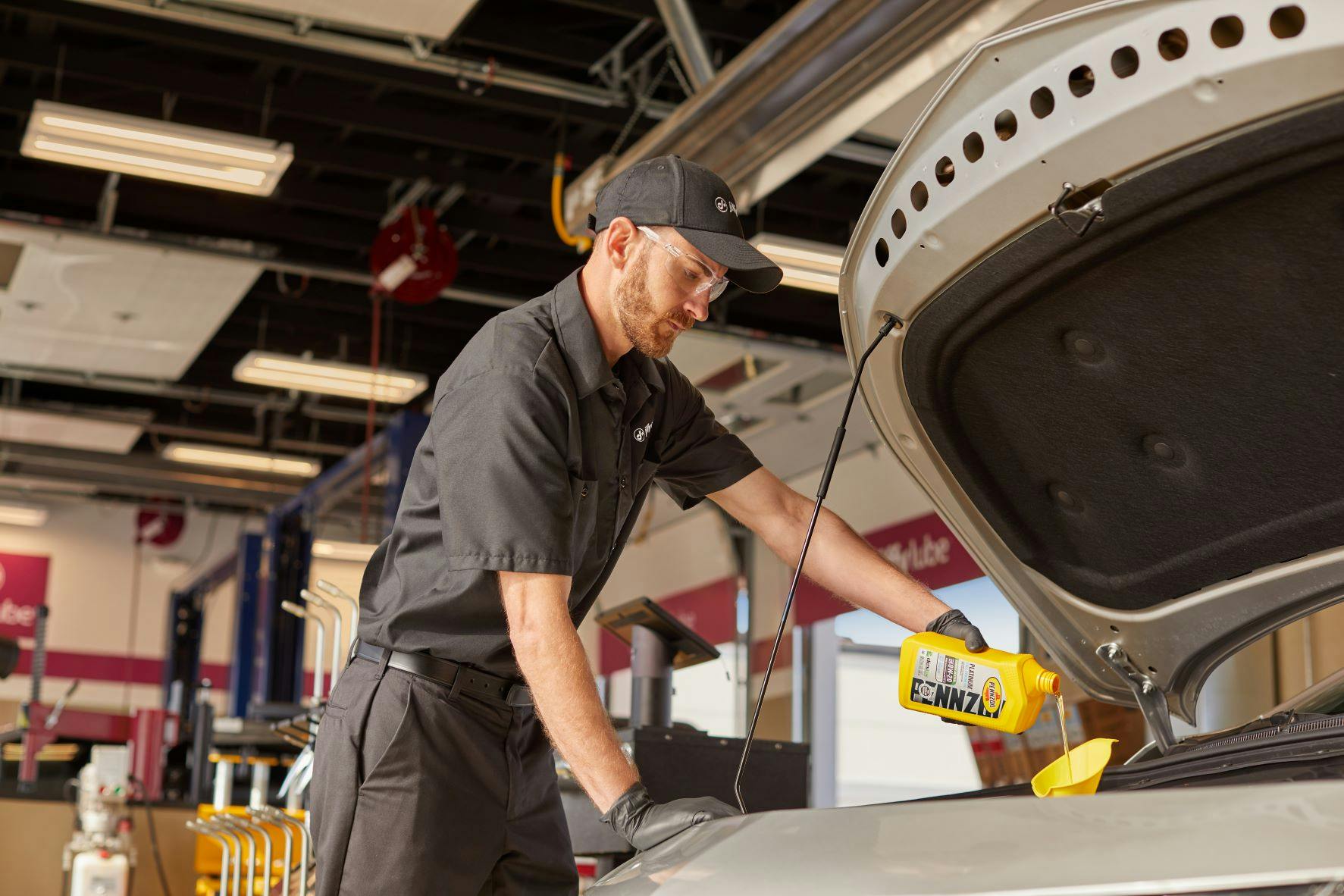We all know the important role motor oil plays in keeping your car running smoothly and efficiently. But did you know that having balanced engine oil pressure is just as important in maintaining the performance of your vehicle? If your engine oil pressure is too low it can not only cause your car to stutter, but it can also damage your engine. If you sense that your oil pressure is low, it’s best to pull off the road, and turn your engine off immediately and get to the root of the problem before you restart your engine.
LOW OIL PRESSURE SYMPTOMS
Oil Pressure Warning Light
Seeing your oil indicator light illuminate is the obvious way to know something isn’t quite right with your engine’s oil pressure. Your oil pressure gauge can also help you determine if your oil pressure is low. Unless the gauge itself is damaged. Then you may receive an inaccurate pressure reading. So be sure your gauge is working properly.
Engine Noise
Clunking. Grinding. Knocking. Ticking. Whining. These are all sounds you may hear if there isn’t enough lubrication to critical engine components, and there’s insufficient oil in your crankcase. It’s your car’s way of telling you to give a look under the hood or take it to your nearest Jiffy Lube® for a thorough inspection.
Burning Oil Smell
We all know that smell. It’s when oil drips onto hot metal surfaces and burns off. This odor may indicate that there may be a leak in your engine, causing your pressure to drop.
Decreased Engine Performance and Overheating
Low oil pressure decreases the oil’s ability to reduce friction and provide proper lubrication. When that happens, your engine is forced to work harder which can lead to premature wear and tear, overheating, or even engine failure. So don’t procrastinate when you detect a pressure problem.
CAUSES AND SOLUTIONS TO LOW OIL PRESSURE
Low Oil Level
The most common reason for low oil pressure is not having enough motor oil in your crankcase. This can be easily resolved by heading to Jiffy Lube for a quality oil change that’s tailored to your vehicle’s specifications. Be vigilant in checking your oil level, especially if you’re driving an older vehicle.
Oil Viscosity
Another cause could be using a lower or higher oil viscosity than recommended in your owner’s manual as the viscosity grade can produce inadequate resistance to the oil flow inside your engine. Your oil pressure sensor could interpret this as low oil pressure and your engine won’t be optimally lubricated. It’s best to use the correct motor oil viscosities recommended by your vehicle’s manufacturer.
Clogged Oil Pump Pick-Up Screen
It’s only natural for dirt, debris, or sludge to build up in your oil pick-up screen. But when that happens, your oil pump will not get the necessary amount of oil it needs to keep it flowing properly, leading to low oil pressure. That’s why it’s important to regularly flush the pick-up screen with a motor oil that fights sludge and build-up, like Pennzoil.
Damaged Oil Pump
Your oil pump may become contaminated with unwanted dirt and debris. Always remember to change your engine oil as recommended to help keep the oil pump free from any contaminants. Also, if you continue running your engine with low oil pressure symptoms, your oil pump may overwork itself and eventually fail. Over time, your oil pump may wear out and may need to be replaced.
Internal Oil Leak
Motor oil is the lifeblood of your vehicle. It’s always important to have the right amount of oil in your engine for proper lubrication. When there’s an internal leak, your engine isn’t receiving the necessary amount of oil to function properly. Worn piston rings, defective valve seals, or even a worn Positive Crankcase Ventilation (PCV) valve could all be reasons why you’re having a leak inside your engine. It’s best to have a trained technician assist you in determining any leaks and if so, where the oil leak is coming from.
Engine Wear
The more you drive your vehicle, the more your engine components are subjected to friction and heat, leading to wear. Engine parts like the crankshaft bearings will wear, creating space around the bearings for oil to flow easier, which results in low oil pressure.
Oil Filter Issue
A clogged oil filter is another reason why you may have low oil pressure symptoms. Damaged oil filter valves can also be a culprit. If damaged, they can let more oil flow through the engine, causing low pressure. It’s important to have your oil filter replaced every time you go in for an oil change.
TAKE THE PRESSURE OFF
We know a little something about motor oil. So, if you’re getting the sense that something is not quite right about your engine’s oil pressure, you can bring your vehicle to Jiffy Lube. When you visit one of the 2,000 Jiffy Lube locations across the country, the trained technicians will perform a multi-point inspection of your vehicle’s engine to pinpoint the problem area and provide you with service options so that you can make the best decision for your vehicle.

READ MORE ABOUT IT
Now that you have a better understanding of your engine’s oil pressure, you can learn more about other components of your car with “Tips in a Jiffy.” New content is added regularly, so you can come back to the site to answer any questions about your vehicle.
Please note: Not all services are offered at each Jiffy Lube location. Please check with your local Jiffy Lube service center or visit jiffylube.com for specific services offered.


